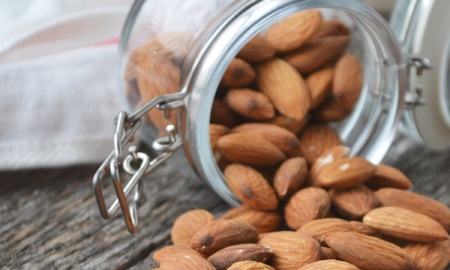The Milk Push
Much of the push toward milk drinking in this country has stemmed from a very powerful dairy lobby and a gross lack of understanding of nutrition on the part of the medical community. The long standing belief is that we require milk for health.
In contrast to the government recommended 3 glasses of preferably low-fat milk per day (2 – 2 1/2 for children), an editorial written by leading Harvard pediatrician David Ludwig and Harvard physician and nutritionist Walter Willett (one of my personal heroes), published in JAMA Pediatrics supports what many in the natural wellness world have been pointing out for decades, that:
- Humans have no nutritional requirement for animal milk, which is a modern addition to the diet on an evolutionary scale
- Fat free milk doesn’t keep the fat off of us – and may in fact, increase obesity
- There is no evidence of the safety of lifelong exposure to the growth hormones naturally found in milk
- Countries with higher rates of milk consumption also have higher rates of osteoporosis
In fact, only milk humans actually require for health is breast milk when we're infants. Once weaned, animal milk is not a biological nutritional necessity. The low-fat milk push stems from misconceptions about the risks of fat in the diet, namely that fat makes you fat and that all fat is bad and causes heart disease.
What About Low -Fat Milk?
Good quality fats are, in fact, incredibly important to our cellular health, protecting against heart disease and boosting our metabolism. They give us long lasting, sustainable energy, reduce insulin spikes, keep us feeling full for longer, and enhance carbohydrate metabolism, actually enhancing weight loss! One study by Dr. Ludwig demonstrates that people eating less dietary fat burn fewer calories than those with a higher fat diet of identical calories! Overall, the low fat-diet trend has been accompanied by an increase in dietary sugar and carbohydrate consumption.
When we remove the fat from milk, it becomes much less filling, leaving us to fill up on the proverbial cookies instead of the milk. You just don’t get as full so you consume more calories from other sources to get the energy your body needs. Yet low-fat milk is relatively high in sugar. In children and adults alike, using low-fat milk products leads to greater weight gain than full-fat milk products.
Do Kids Need Milk?
Not drinking milk when I was pregnant, and then not giving it to my young kids was a tough – and unpopular – decision. Obstetrician and pediatrician colleagues said it was essential for my children’s proper growth and development. All of my friends were giving it to their kids. And the Got Milk? ads (sponsored by a very powerful dairy industry!), which had just started to hit the big time, were a constant reminder that I could be putting my own and my kids’ health in jeopardy. But somehow cow milk didn’t make sense to me as a dietary staple. It’s a concentrated sugar and fat content drink intended to grow a baby animal to hundreds of pounds in no time flat!
Beside that, drinking a glass of milk with a giant curdle in it had taken milk off of my gustatory welcome list since I was 6 years old. I'll never forget that curdle! (Yuck!).
Then I met a 94-year old still-practicing pediatrician who asked me if I gave my children milk to drink. I sheepishly told her I did not, fully anticipating the firestorm of disapproval pediatricians bestow on well-meaning parents whose practices deviate from their own. Instead, I surprisingly got a nod of approval (she was a craggy old woman and though I want to say a warm nod, there was nothing warm about her). “Good,” she said crispy in her gravely voice, “Your children are not calves or kids. Milk makes children fat and anemic. They don’t need it.” Heck, the woman was 94 and still practicing medicine – she had to be on to something!
That was nearly 25 years ago. Three of my four kids have since far exceeded our family’s average height on both sides, and out of 4 sets of teeth, we’ve seen only 3 cavities in 28 years. And interestingly, unlike both my husband's family and my own, none of my kids have seasonal allergies or asthma, and none had eczema, which may be related to dairy allergies. My son is 6-8 inches taller than the tallest men on both sides of our family. He did crave milk as a teenager. I kept it on hand for him during that time. He grew 10 inches. My own seasonal allergies, which had been severe, disappeared when I took dairy completely out of my own diet, something I've seen repeated many times with patients.
Worse is that many parents and schools, while getting sodas and other sweetened beverages out of kids’ diets, are replacing these with low-fat, highly sweetened flavored milks, for example, chocolate milk beverages. Yet these have as many calories – or more – than sodas! Ludwig states, “The substitution of sweetened reduced-fat milk for unsweetened whole milk – which lowers saturated fat by 3 g but increases sugar by 13 g per cup – clearly undermines diet quality, especially in a population with excessive sugar consumption.”
What About Calcium?
What about calcium? Countries with the highest dietary dairy intake have the highest rates of osteoporosis, and individuals in countries with extremely low dairy intake amongst the lowest. Ludwig and Willett state that daily calcium needs are likely overestimated, and that human beings met their daily calcium needs through food long before humans domesticated dairy animals. Dark leafy greens, seeds and nuts, legumes, and small fish such as sardines are rich sources of calcium. Further, calcium is not the only important nutrient for our bones. Magnesium and vitamin D are just as important. And perhaps the most important bone building nutrient? Weight bearing exercise!
Should We Consume Any Dairy?
So what should we eat? What should we give our children? A healthy diet is replete with green leafy vegetables, legumes, nuts, seeds, and adequate protein from a variety of sources. Water is always our best beverage. Breast milk is best for babies.
Should dairy products be a part of our diet? If well tolerated, small amounts of organic yogurt, cheese and full-fat milk can be nutritious, filling, and delicious, and entirely appropriate in various stages of our lives and for our eating pleasure. Some of us, however, just don't tolerate dairy well, experiencing symptoms ranging from digestive discomforts to sinus congestion to anxiety and depression. In those cases, it's not an optimal food for you, though gut healing can improve tolerance in some individuals. Instead I encourage non-dairy dietary sources of nutrition.
Throughout the years, much like that 94-year old physician did, I have steered my patients away from drinking milk as a beverage unless a nutritional necessity, for example, a mother is truly unable to breastfeed, or a pregnant mom or child needs to gain weight or get extra dietary protein and calories and is just having trouble doing it.
Little children who have been weaned but not yet fully eating solids may do well with organic whole milk if tolerated. In babies under 1 year of age, dairy can cause gut inflammation leading to chronic micro-bleeding in the intestines, causing anemia, so it is optimally avoided entirely in this age range. It is not required in the recommended 3 cups/day for us to be healthy.
When I do recommend dairy products, they are of the full-fat variety. And I always recommend organic dairy products to minimize exposure to hormones given to cows to increase milk production and antibiotics and other chemicals used in the dairy industry. Many individuals, even some who cannot tolerate cow dairy, do very well with goat milk and other goat dairy products, a good source of protein and other nutrients. The proteins and fats in goat milk are more digestible than those in cow milk.
And sure, a small amount of full-fat milk in an occasional cup of coffee can be one of life's great adult pleasures, eh?



